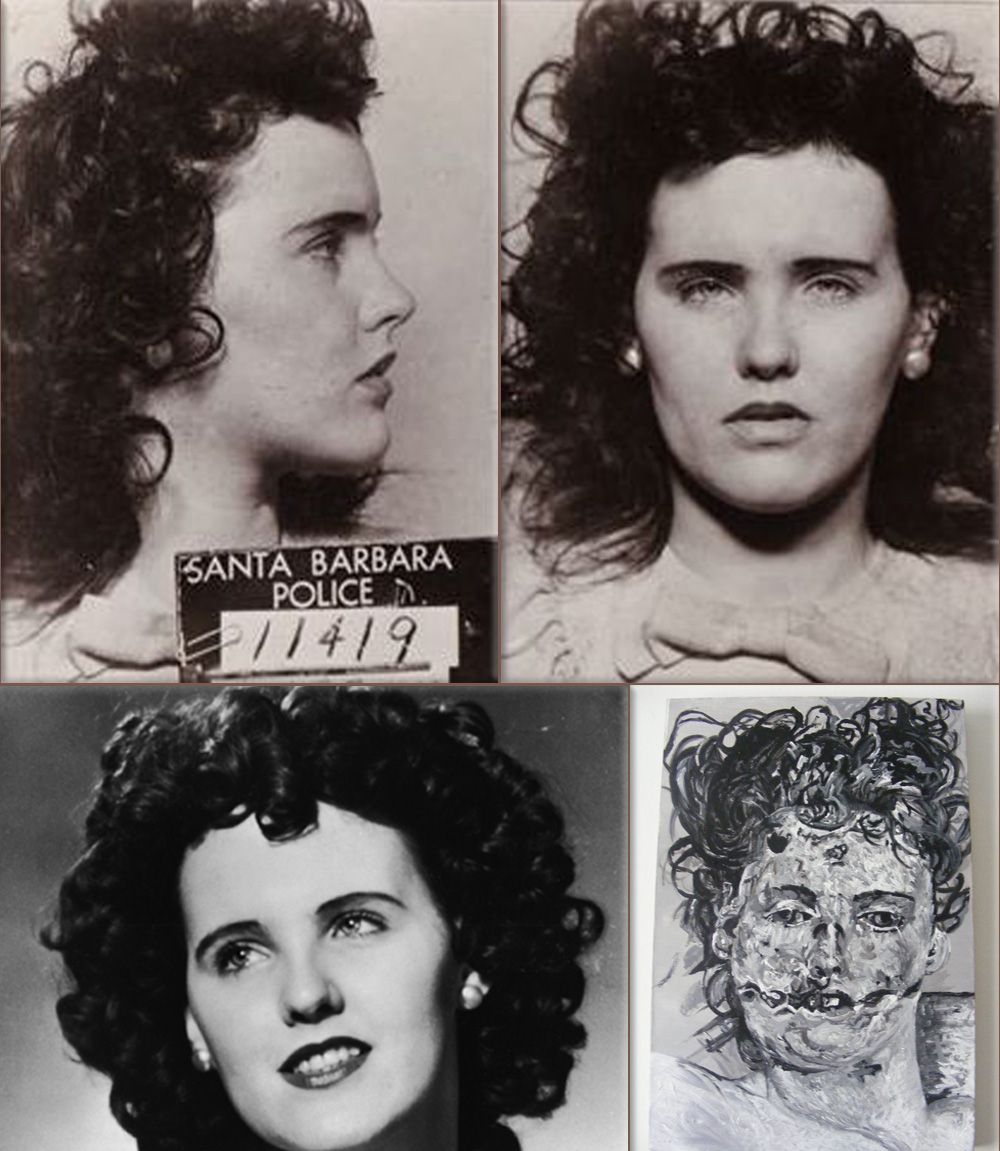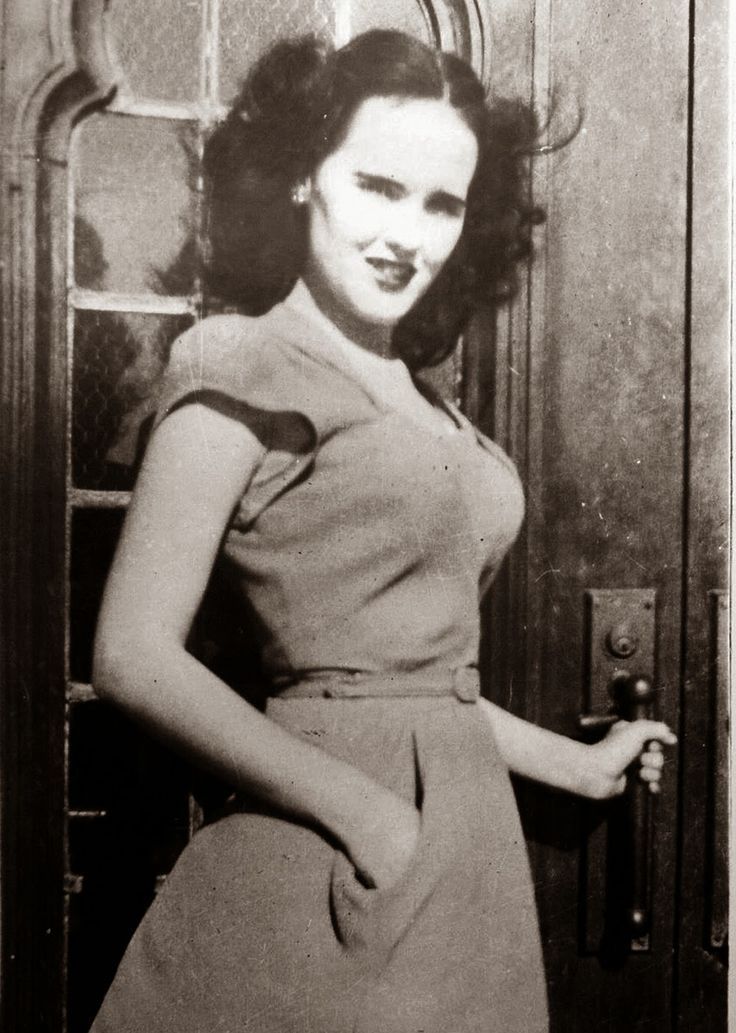Elizabeth Short: The Tragic Tale Of The Black Dahlia
Some stories stick with us not because of their happiness, but because of their mystery. Elizabeth Short, better known as the Black Dahlia, is one of those names that sends chills down the spine. Her story has haunted Los Angeles for decades, a dark chapter in the city's history that remains unsolved. But who was Elizabeth Short? And why does her story continue to captivate people worldwide?
Before we dive into the mystery, let's talk about why this case matters. Elizabeth Short's murder wasn't just another crime; it became a symbol of a darker side of post-war America. Her story has inspired books, movies, and countless investigations. But beyond the headlines and the theories, there's a real person whose life deserves to be remembered.
This article aims to shed light on Elizabeth Short's life, her mysterious death, and the impact her case has had on society. We'll explore the facts, the myths, and the unanswered questions that have kept this case alive for over 70 years. So grab a coffee, sit back, and let's unravel the tale of the Black Dahlia.
Read also:Jen Bretty Onlyfans Leak The Untold Story Behind The Viral Sensation
Here's a quick guide to what we'll cover:
- Biography of Elizabeth Short
- Early Life and Background
- Her Move to California
- The Murder and Investigation
- Why Was She Called the Black Dahlia?
- The Theories Surrounding Her Death
- The Impact on Society
- Representation in Media
- Her Legacy Today
- Final Thoughts
Biography of Elizabeth Short
Elizabeth Short was born on July 29, 1924, in Boston, Massachusetts. Her life was relatively ordinary until her untimely death in 1947. Known for her striking beauty and enigmatic personality, Short quickly became a figure of fascination after her murder. But before we get into the gory details, let's take a moment to understand who she was as a person.
Personal Details
Here's a quick snapshot of Elizabeth Short's life:
| Full Name | Elizabeth Short |
|---|---|
| Nickname | Black Dahlia |
| Date of Birth | July 29, 1924 |
| Place of Birth | Boston, Massachusetts |
| Date of Death | January 15, 1947 |
| Cause of Death | Murder |
Short's life wasn't just about her tragic end; it was about the dreams and aspirations of a young woman trying to make her mark in a rapidly changing world. Let's dive deeper into her early years.
Early Life and Background
Elizabeth Short grew up in a modest family. Her father, Cleo Short, was a carpenter, and her mother, Phoebe Mae Welch, worked as a bookkeeper. Short had four siblings and spent much of her childhood in Medford, Massachusetts. Despite financial struggles, her family provided a loving environment.
During World War II, Short worked at a munitions factory, contributing to the war effort like many young women of her time. But her dreams extended beyond the factory floor. She wanted to see the world, experience new things, and maybe even become an actress. Who wouldn't, right?
Read also:Chyna Chaseleaks The Untold Story Behind The Viral Sensation
Her Move to California
By the late 1940s, Elizabeth Short had set her sights on Hollywood. In 1943, she moved to Florida, where she reportedly dated U.S. Army Major Matthew Michael Gordon Jr., who was killed in action during the war. This loss deeply affected her, but it didn't stop her from pursuing her dreams.
By 1946, Short had made her way to Los Angeles, a city known for its glitz and glamour. She lived in various locations around the city, working odd jobs while trying to break into the entertainment industry. But life in LA wasn't as glamorous as she had imagined. It was tough, competitive, and often lonely.
The Murder and Investigation
On January 15, 1947, a horrifying discovery was made in a vacant lot in Leimert Park, Los Angeles. Elizabeth Short's body was found mutilated, her face and body severely damaged. The crime scene photos are some of the most disturbing images in modern history, and they quickly captured the attention of the media.
Short's body was cut in half at the waist, and her face was grotesquely slashed. The case shocked the nation, and the LAPD launched a massive investigation. Thousands of tips poured in, but none led to a conclusive suspect. To this day, the case remains unsolved, a dark stain on the city's history.
Key Facts About the Murder
- Short's body was discovered in a vacant lot in Leimert Park.
- She was cut in half at the waist, and her face was mutilated.
- No conclusive evidence or suspects were ever identified.
- The case remains one of the most infamous unsolved murders in American history.
Why Was She Called the Black Dahlia?
The nickname "Black Dahlia" was given to Elizabeth Short by the press, inspired by the 1946 film "The Blue Dahlia." The name stuck, partly because it captured the dark, mysterious nature of her death. But it also reduced her to a symbol, overshadowing her humanity.
Short was more than just a nickname. She was a young woman with hopes and dreams, a life cut tragically short. The media's focus on the sensational aspects of her death sometimes overshadowed the reality of who she was as a person.
The Theories Surrounding Her Death
Over the years, countless theories have emerged about Elizabeth Short's murder. Some suggest a serial killer was responsible, while others point to jealous lovers or even members of the entertainment industry. Here are a few of the most popular theories:
Serial Killer Theory
One theory suggests that Short's murder was the work of a serial killer. The brutality and precision of the crime suggest someone with a twisted mind and perhaps medical knowledge. However, no other similar murders were reported in the area at the time.
Jealous Lover Theory
Another theory points to a jealous lover. Short was known to have relationships with various men, and some speculate that one of them snapped. But without concrete evidence, this remains just a theory.
Hollywood Connection
Some believe Short's connection to the entertainment industry played a role in her death. Could she have stumbled upon something dangerous? Or was she targeted because of her aspirations? The truth may never be known.
The Impact on Society
Elizabeth Short's murder had a profound impact on society. It highlighted the dangers faced by young women in urban areas and sparked a national conversation about violence against women. The case also exposed the limitations of law enforcement at the time, as well as the media's role in shaping public perception.
Today, the Black Dahlia case serves as a reminder of the importance of justice and accountability. It also underscores the need to remember victims as real people, not just statistics or headlines.
Representation in Media
The Black Dahlia case has been the subject of numerous books, films, and TV shows. Some of the most notable adaptations include:
- "The Black Dahlia" (2006) – A film based on the novel by James Ellroy.
- "Black Dahlia Avenger" (2003) – A book by Steve Hodel, who claimed his father was the killer.
- "True Detective" (Season 1) – A TV series that references the case in its storyline.
While these adaptations bring attention to the case, they also sometimes perpetuate myths and stereotypes. It's important to remember the real person behind the stories.
Her Legacy Today
Elizabeth Short's legacy lives on in the hearts of those who remember her. Her case continues to inspire investigations, discussions, and even new theories. But beyond the headlines, she remains a symbol of the dangers faced by women and the importance of seeking justice for all victims.
Today, organizations and advocates work tirelessly to address issues of violence against women, inspired in part by cases like Short's. Her story serves as a reminder that every life matters and that justice is worth fighting for.
Final Thoughts
Elizabeth Short's life and death are a tragic reminder of the fragility of life and the importance of remembering those who have been lost. Her case remains one of the most infamous unsolved murders in history, a mystery that continues to captivate and haunt us.
As we reflect on her story, let's not forget the real person behind the headlines. Elizabeth Short was more than just a nickname or a case file. She was a young woman with dreams, aspirations, and a life cut tragically short. Let's honor her memory by continuing to seek justice and advocating for a safer world for all.
So, what do you think? Do you have a theory about the Black Dahlia case? Or do you simply want to learn more about this fascinating yet tragic story? Leave a comment below, and let's keep the conversation going!
Article Recommendations


